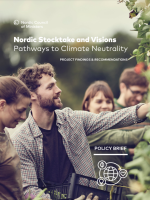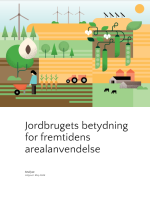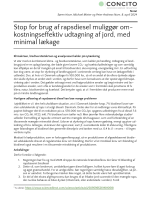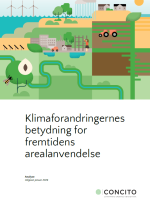Nordic Stocktake and Visions - Pathways to Climate Neutrality
This policy brief highlights the main takeaways from the project “Nordic Stocktake and Visions – Pathways to climate neutrality”. The project has resulted in two main reports:
- Nordic Stocktake – Pathways to climate neutrality
- Nordic Visions of Climate Neutrality
The report “Nordic Stocktake – Pathways to climate neutrality” concludes that the Nordic region needs to increase the pace of the green transition if we are to lead by example. Since 1990, GHG emissions have been reduced by 26% across the Nordic region. This reduction is almost exclusively achieved through emission reductions in the energy sector. Reaching climate neutrality rests on the Nordic countries achieving fast and significant reductions in the other sectors (industrial processes, domestic transport as well as agriculture, and land-use, land-use-change, and forestry). There is great potential in a strengthened Nordic collaboration as many of the challenges and barriers faced by the Nordic countries are the same.
The report “Nordic Visions of Climate Neutrality” concludes that there is a need for visions in climate change policy across the Nordic countries. Visions are powerful tools in spurring action and creating support for the green transition. In the light of this, climate change policies, and arguments for specific climate change policy, need to be aligned with visions. The report also shows that the Nordic countries share the same visions. Importantly, visions of a climate neutral Nordic society are not just about emission reductions and technologies. Instead, visions are centered around issues such as health, time, and communities.
There are opportunities for cross-Nordic collaboration across all sectors:
- Knowledge-sharing on increasing acceptability - and reducing potential negative impacts on nature and local populations - for renewable energy installations
- Developing a Nordic roadmap for the sustainable development, production, and use of biofuels and synthetic fuels
- Intensify collaboration on the value chain of Carbon Capture and Storage across the Nordic countries
- Knowledge sharing on carbon pricing in agriculture – risks and incentive structures
- Increased knowledge-sharing (“best practices”) and collaboration on addressing consumption-based emissions in the Nordic countries
- Collaboration on a just and fair transition, incl. more research on making carbon taxes and pricing fair




